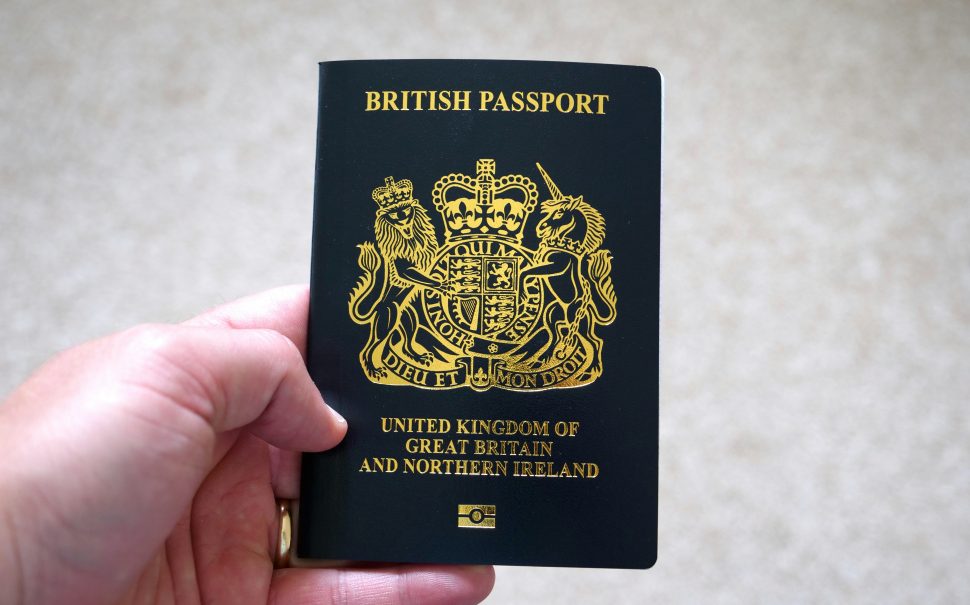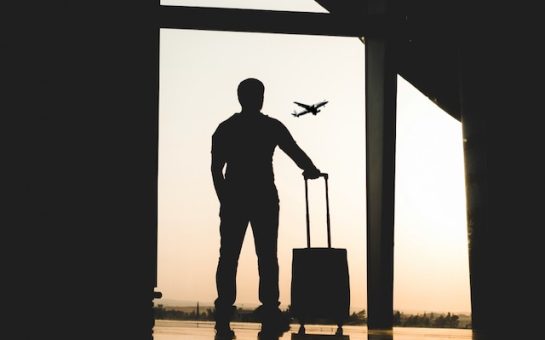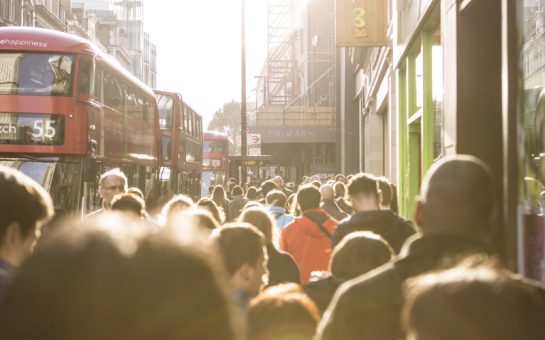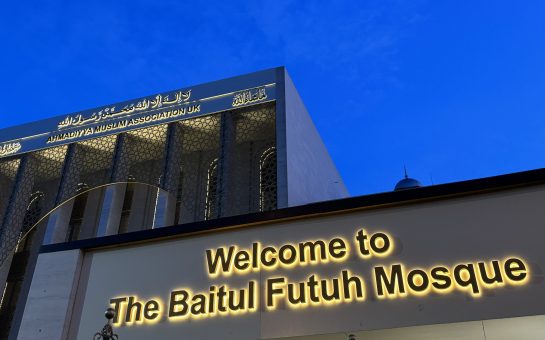Keir Starmer has faced criticism for references made to asylum seekers from Bangladesh before the general election.
Then-opposition leader Starmer referenced the South Asian country in comments about asylum seekers, in a comment that some felt singled the nation out.
In an interview with the Sun, he said: “I’ll make sure we’ve got planes going off, not to Rwanda because that’s an expensive gimmick.
“They will go back to the countries where people come from, that’s what used to happen,”
When pressed for an example by moderator Harry Cole, Starmer said: “At the moment, people coming from countries like Bangladesh are not being removed, because they’re not being processed.”
Cllr Sabina Akhtar, deputy leader of the Labour group on Tower Hamlets, resigned from the Labour Party in response to the comments.
Starmer later clarified he did not intend any concern or offence and acknowledged the contribution the Bangladeshi community had made to the country.
He also stressed that Bangladesh was a safe country and had a returns agreement with the UK.
According to government data, Bangladesh was ranked 9th in the number of asylum seeker applications lodged in the UK by the end of March 2024.
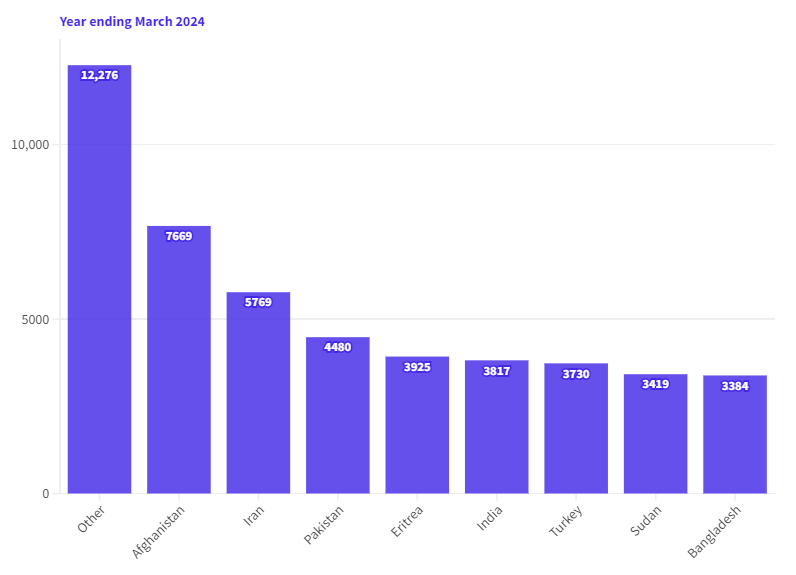
Asylum seekers from Bangladesh face long waiting times for decisions from the UK Home Office due to a large backlog of asylum cases.
This means their hopes of settling in the UK remain difficult and uncertain.
Ayan, a 30-year-old from Bangladesh, arrived in the London by himself seeking political asylum in 2022.
He claimed his application is still pending after two years.
Ayan said: “I am a leader of the Bangladesh Nationalist Party (BNP).
“The Bangladeshi government thought our party was dangerous for the country, so they targeted and threatened me, my father and my girlfriend.
“My family decided that I should leave Bangladesh and come to the UK.”
As a member of the Bangladesh Nationalist Party, Ayan claimed to have been ill-treated by the Bangladesh government since he joined the party in 2020.
He applied for political protection from the UK as soon as he arrived in 2022.
If his refugee status is granted by the UK Home Office, Ayan would receive a residence permit that holds his biographic details, bringing him one step closer to his dream of becoming a UK citizen.
While patiently awaiting Refugee Status in the UK, Ayan works as a chef at a Thai restaurant in London.
However, his temporary visa to stay in the UK will expire in June 2025, his future in the UK remains uncertain.
Ayan said: “I just want to focus on doing well in my job while waiting for the outcome from the Home Office.”
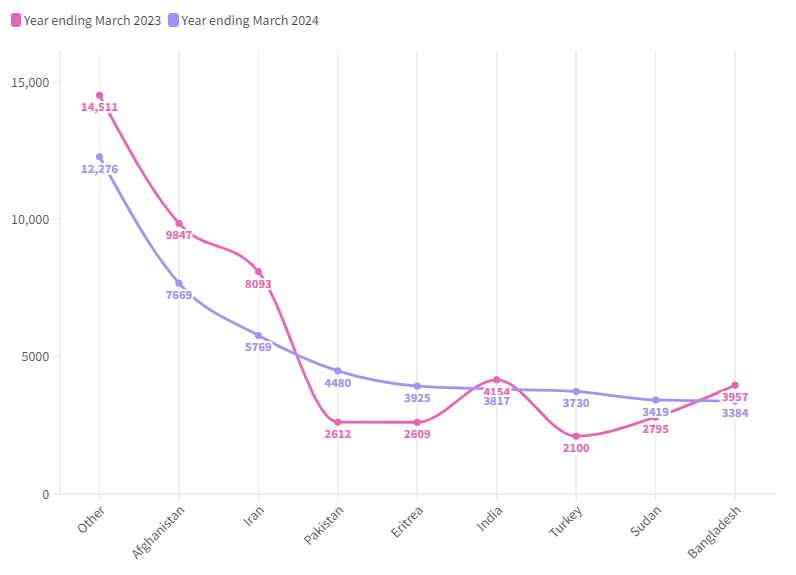
Mahadi Hassan, a barrister and the secretary of the Society of British Bangladeshi Solicitors, shared his expectations regarding Starmer’s new government and its approach to asylum seekers.
Hassan said: “What we want to see is for this government to ensure that every single person, regardless of how they came to this country, whether by plane or otherwise, is treated equally.
“I understand that there is a range of anger and frustration in this country due to fear against immigration, particularly because some people believe that asylum seekers come for benefits.
“But these perceptions toward asylum seekers may not be true.”
The latest government data showed that Bangladesh asylum seekers were the fourth largest group to lodge asylum appeals in the first quarter of 2023.
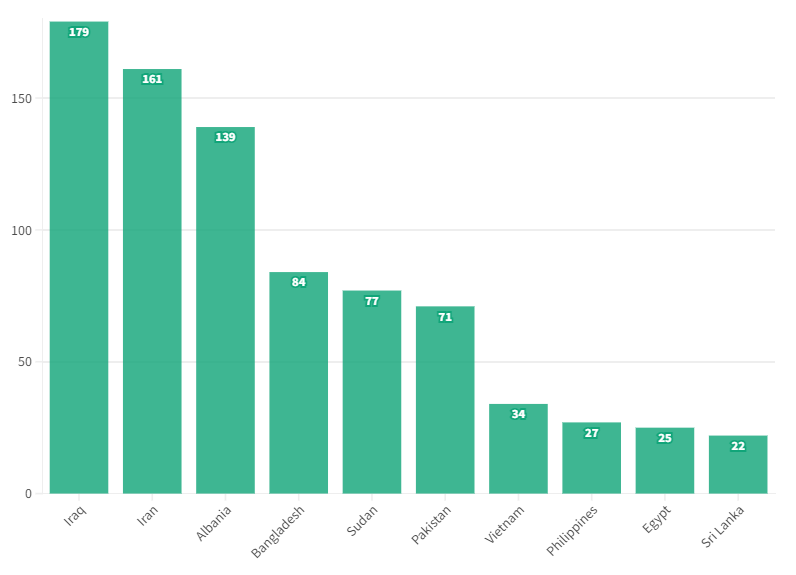
According to the House of Commons Library, until June 2023, there were 215,500 asylum cases in progress.
These included 5,100 cases awaiting appeal outcomes, around 41,200 cases targeted for removal action, and 138,000 cases in the process of initial decisions from the Home Office.
Backlogged appeal cases have also led to the long wait for asylum seekers to be granted refugee status within the UK.
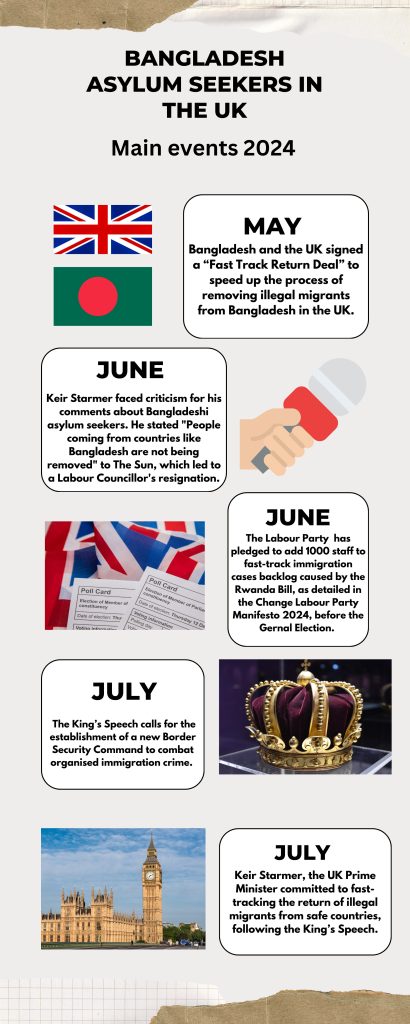
Mufti Nafees, a London-based barrister and solicitor, explained that the situation Bangladesh was leading to people leaving.
He said: “The country is in chaos, there have been ongoing protests in the country for the past seven days.
“Corruption is a key issue in these protests, supporters of the government are becoming increasingly wealthy, while those who oppose them face significant challenges.
“As a result, many Bangladeshis moved to United Kingdom and other countries because they are hopeless.”
The Bangladesh High Commission in London has been approached for comment.
Featured image credit: Ethan Wilkinson from Unsplash
